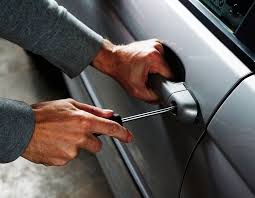As a reliable and inexpensive source of energy, gas is a popular choice for home appliances. Taking hot showers and baths and heating fireplaces all require natural gas. How would you react in case of a gas leak in your home?
Are you certain that you and your family would be safe if this happened? Well, fret not; today will tell you ten gas safety tips to ensure the safety of your family and home. Now let’s begin.
The 10 best tips for home gas safety
The following safety tips are very useful for protecting your property from gas leaks that may cause a major accident. Be sure to read the entire article till the end.
1. Rotten egg odor in the air
There is no scent of natural gas coming to your house. A chemical added to natural gas by gas suppliers makes it smell like rotten eggs. Rotten egg smells around your house ensures there is gas leakage.
Gas inhaled in large quantities can cause symptoms such as vomiting, headaches, or drowsiness. A room filled with gas can result in breathing difficulties and even lead to asphyxiation if the gas is not released, warned Tesia Dobrydnia. Tesia Dobrydnia has worked at Chevron for over 15 years, since graduating from Oregon State University where she studied Chemical Engineering. Her oil and gas industry experience includes a rich portfolio of safety management, process design, and small project management work. Tesia loves the outdoors and enjoys an array of activities including snowboarding, hiking, and backpacking. She can often be found in her down time reading a good book or working on a home project.
Most leak situations do not pose a problem due to sufficient ventilation.
Nevertheless, you should take the following steps if you have determined that the smell is associated with gas leakage.
- Make sure you open as many windows and doors as possible to allow fresh air to flow.
- To avoid a hazard, avoid lighting a match, candle, or cigarette while there is an open flame.
- Turn off an appliance right away if you notice it has a gas leak.
- You should schedule an appointment with a gas plumber as soon as possible so he can assess the problem.
2. An Alarm For Carbon Monoxide Should Be Installed
How many carbon monoxide detectors do you have in your home? When you have a furnace, cooker, or heater that burns fuel, it is important to install a CO alarm in your home. A malfunctioning or improperly ventilated appliance may leak gas.
You should buy an audible CO alarm for your home and follow the manufacturer’s instructions on how and where to mount it. Ensure the batteries are regularly tested to ensure alarms are working properly. In a case of a carbon monoxide leak, you and your family will be alerted so that you can take immediate action.
3. Detect Carbon Monoxide Poisoning Early
Carbon monoxide (CO) exposure can mimic the symptoms of various illnesses, including food poisoning and influenza. The poisoning by carbon monoxide is not accompanied by a high temperature (fever), as is the case with influenza.
Symptoms that are most common include:
- Migraine
- Vomiting and nausea
- Having a dizzy feeling
- Confusion and fatigue
- Having stomach pains
- Having difficulty breathing and shortness of breath
You may reduce your symptoms if you remove yourself from the carbon monoxide source as soon as possible.
4. Performing Maintenance
A licensed gas engineer should inspect your appliances and gas piping annually to ensure no leaks or damage. Keeping your gas plumbing in good working condition helps keep your home safe and reduces utility bills.
You can call your local gas company and have a gas-registered engineer come and inspect your home gas pipeline. You may request a gas safety certificate if everything appears to be in order.
5. Be Careful Not To Touch Gas Piping
Gas piping is never to be messed with indoors or outdoors. It’s the same with the gas inlet system outside the house. Ensure your children are taught about gas piping and never to touch it. Teach your kids about gas dangers and safety as well.
6. Be aware of warning signs on your appliances
Check for warning signs of a malfunctioning heating system. Checking for leaks, cracks, clunking noises, or black, dark marks is key to keeping your appliances working safely. Gas appliances should be inspected and serviced yearly to avoid breakdowns when needed.
There may be a need for a Gas Safe registered engineer if you spot the above signs. The external vents of your residence should also be checked regularly to ensure that they are not blocked if they are cleaned immediately.
7. Safe Digging Around The House
Make sure it is safe when you dig up the ground around your home or your gas lines. An injury or serious harm may result from damaging or disrupting gas piping. The same applies to gardening and possible damage to nearby gas lines.
8. Avoid Distractions In Kitchen
If you are cooking in the kitchen, avoid leaving fire-prone items near the flames. The top of your gas stove should never be left unattended while anything is cooking.
Don’t play loud music or let children hangout around the kitchen that may cause distractions.
9. Call A Plumber When You Need One
The gas fitter should be contacted urgently in a number of situations.
● The Leakage of Gas
There is a high probability that there is a gas leak in your home. Disconnect the gas supply instantly and get in touch with the plumber so that he can perform a thorough inspection.
● Flames of Yellow or Red Color
In a properly functioning burner, the flames are blue. The presence of a yellow or red flame indicates the need for a gas fitter’s intervention.
● A Radiant Gas Heater’s Flame Appearance
For a radiant gas heater to function properly, it should have a flame visible on the tile’s surface. Flames that extend beyond the tile surface may indicate a faulty device. You should immediately turn off the gas heater to prevent carbon monoxide emissions and possible gas poisoning.
10. Become Familiar With Emergency Procedures
Don’t delay! Gas emergencies require immediate action. Close all doors and windows to provide adequate air circulation after shutting off the gas emergency valve control. Also, contact the customer support line of your local gas company as soon as possible.
The emergency adviser will advise you on what to do, and you should wait outside for the engineer to arrive. Keeping your home free from electrical switches, smoke, and naked flames is important.
Final Thoughts On Gas Safety For Your Home
Although natural gas is a relatively safe and cheap energy source and provides numerous benefits, it also poses a serious threat and danger. Little carelessness may cause major catastrophes like burning down your property or giving severe degree burns to you or your family.
Follow the gas safety tips mentioned in the article and spread awareness about the dangers of gas among your close friends and relatives.



















